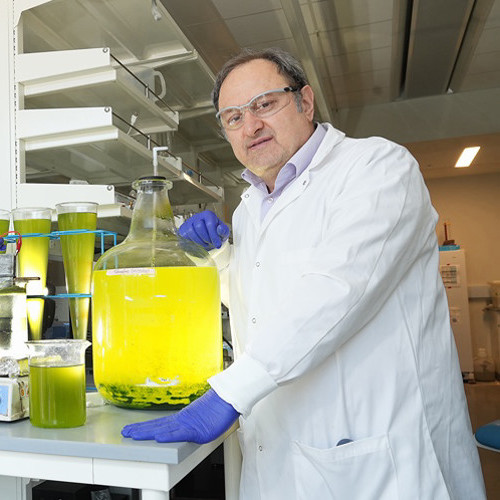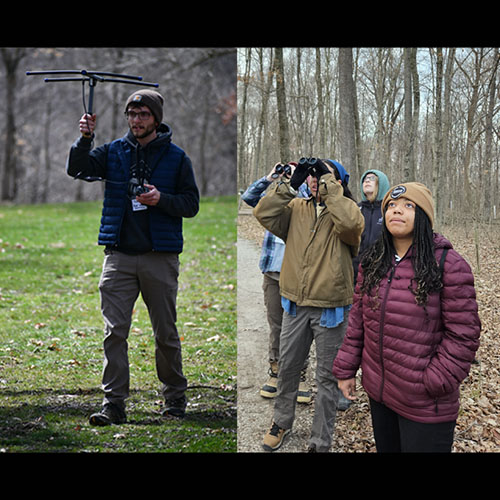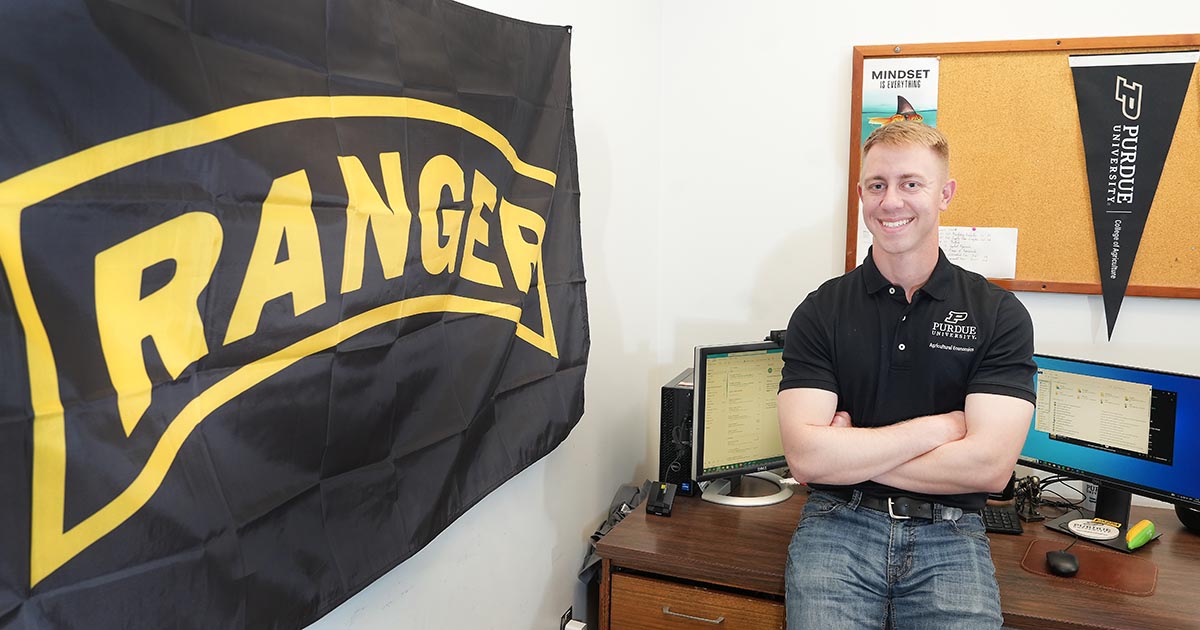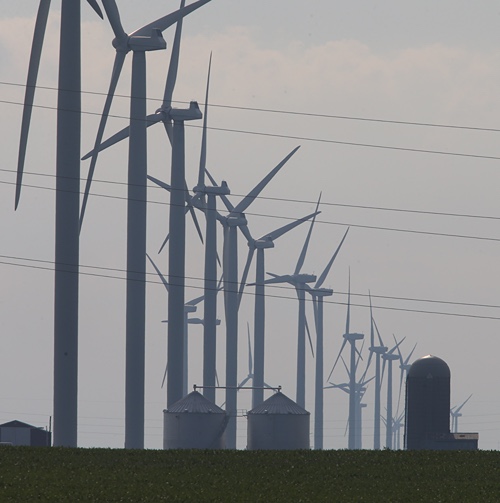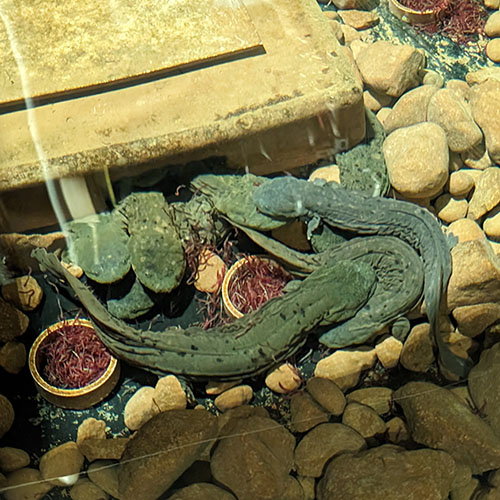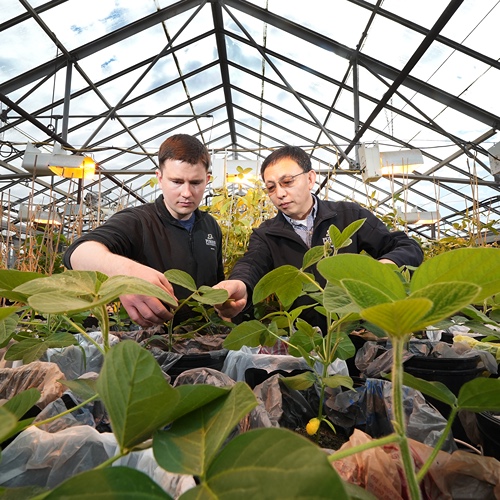Editor’s Note: This story was written when Dillon Muhlenkamp was a junior. He earned his bachelor’s degree in agricultural education in 2023.
If you travel to the Jay County Fair in Indiana, you will probably find Dillon Muhlenkamp helping someone with something. Whether he’s fixing food for the Junior Leaders stand or helping first-year 4-H members with their poultry projects, he’s always lending a hand. And no matter what he’s doing, it always seems that Muhlenkamp has a smile on his face. That’s because he loves agriculture and teaching.
“For me it started in the ag classroom when I took my first intro to ag class, and that blossomed into my love for ag education,” said Muhlenkamp, a junior agricultural education major from Bryant, Indiana.
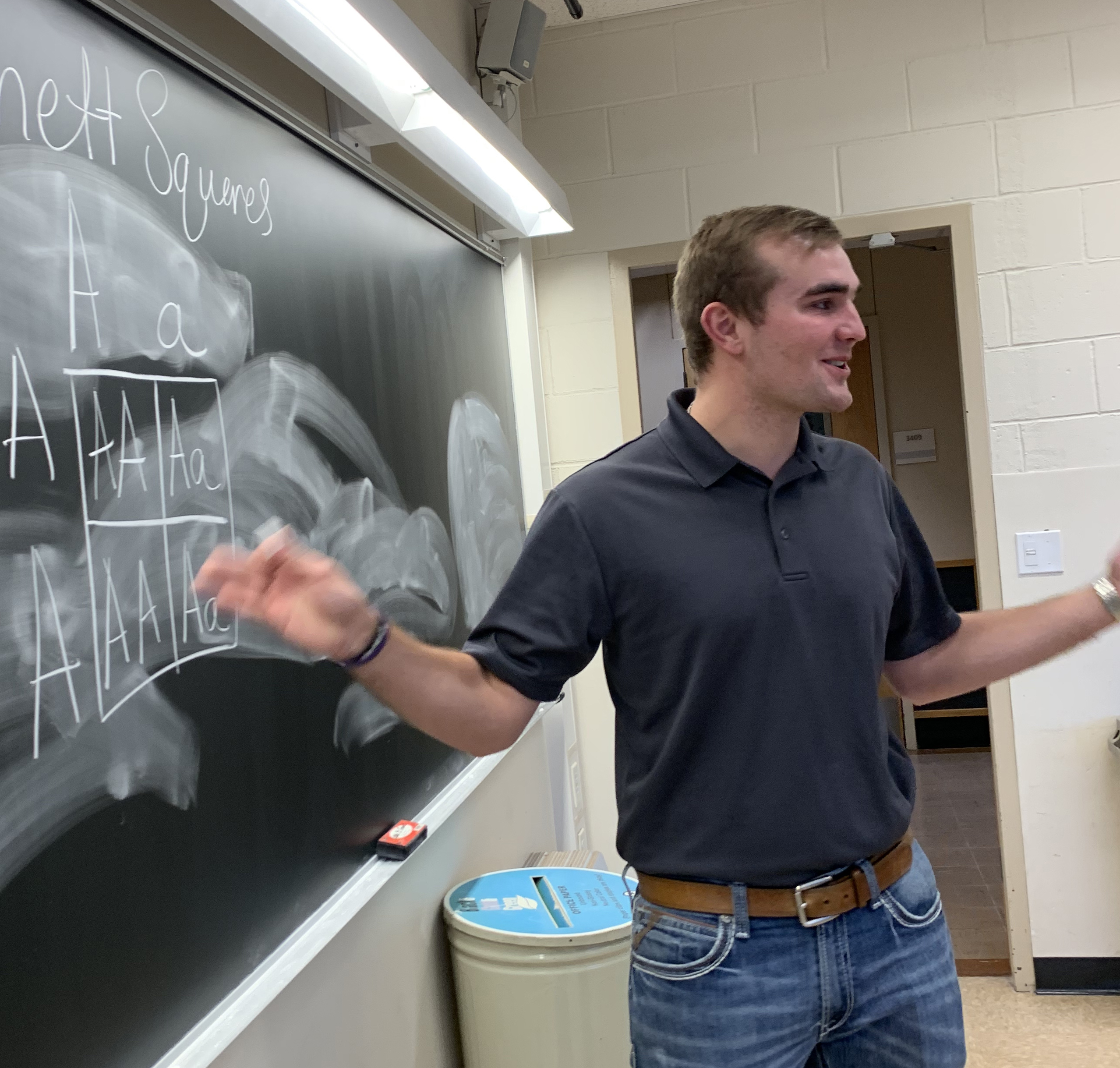 Dillon Muhlenkamp, a junior agricultural education major from Bryant, Indiana, has always enjoyed agriculture and teaching almost as much as he loves lending a hand wherever he’s needed. Photo by Katie Mize.
Dillon Muhlenkamp, a junior agricultural education major from Bryant, Indiana, has always enjoyed agriculture and teaching almost as much as he loves lending a hand wherever he’s needed. Photo by Katie Mize. And this love certainly blossomed. That’s why you will always see him smiling in his work. He also smiles when he can jump into anything that fulfills his love for agricultural education.
“I like to ask questions and hear opinions from others about how I can better myself within this program,” Muhlenkamp said.
He has been asking a lot questions since he was young, and he is not afraid to ask them. However, when he was young, he was questioning how he could help others. He said that he decided he wanted to be a teacher while he was still in kindergarten, because he knew he always wanted to help people. But he kept wondering what kind of teacher he should be.
He answered that question when he took an introduction to agriculture course in junior high. Since then, Muhlenkamp said he was hooked and has jumped into any agricultural education activity he could find.
In high school, that meant volunteering for every kind of job at the Jay County Fair. Last summer, it meant being the Indiana Farm Bureau education and engagement intern, which allowed him to work on various projects.
One of the most rewarding things he learned from that internship came from working with youth and even adults in Indianapolis. Muhlenkamp’s role was to teach people, most of whom had never seen a farm, about agriculture and its importance. He said the experience taught him how to see his work from a new perspective and keep it as a lesson he will remember throughout his career.
“As an ag teacher, you have to be able to know how to do a lot of different things,” Muhlenkamp said. “But I think that’s what ag education does — it pushes you out of your comfort zone to be willing to explore new things.”
Leaving your comfort zone goes for students and their teachers. Muhlenkamp realized that the people he worked with had never lived or worked on a farm, so they had to try something they didn’t know. But Muhlenkamp left his comfort zone, too. Before this experience, he had worked with youth who had strong ties to agriculture through FFA.
Even with strong ties to agriculture, Muhlenkamp said that his first experiences in junior high FFA also pushed him to learn outside of his comfort zone.
“When I first joined in high school, I was the shy kid, still trying to figure out where I wanted to be and how I could make an impact,” Muhlenkamp said.
But he grew to love FFA so much that he eventually became the District VI FFA president and eventually the Indiana state FFA president.
The best way to help others understand agriculture is to educate them about it, Muhlenkamp said. Not everyone grows up or works on farms. But Muhlenkamp sees this as an outreach challenge. He said he wants to reach out to as many students as he can through agricultural education.
It may seem that Muhlenkamp can do just about anything, but he does not credit his success story to himself. He said he prides himself on surrounding himself with the right people.
“I can call these people my cheerleaders; they always pushed me to try new things,” Muhlenkamp said with a smile on his face.
He has continued to cultivate this same support at Purdue.
“I don’t know if there has ever been a time I’ve been walking to class and didn’t see someone I know,” Muhlenkamp said. “We really are a family.”
Watching him teach others, you may be tempted to think it comes easy to him, but Muhlenkamp said he would not be able to be where he is today without working hard and digging deeper for even more opportunities in agricultural education.
“People underestimate the importance of an agricultural education degree — you can do almost anything with an ag education degree,” Muhlenkamp said. “It’s kind of like the backbone of our industry. We are out there educating the next generation of leaders and agriculturists.”
The future isn’t always clear, but Muhlenkamp said he knows one thing was for certain: he’ll be helping others in agriculture. And chances are, he will be doing so with a smile on his face.
Find out more
Purdue Agricultural Sciences Education and Communication
Katie Mize earned her bachelor's degree in agricultural communication in 2022 from Agricultural Sciences Education and Communication
